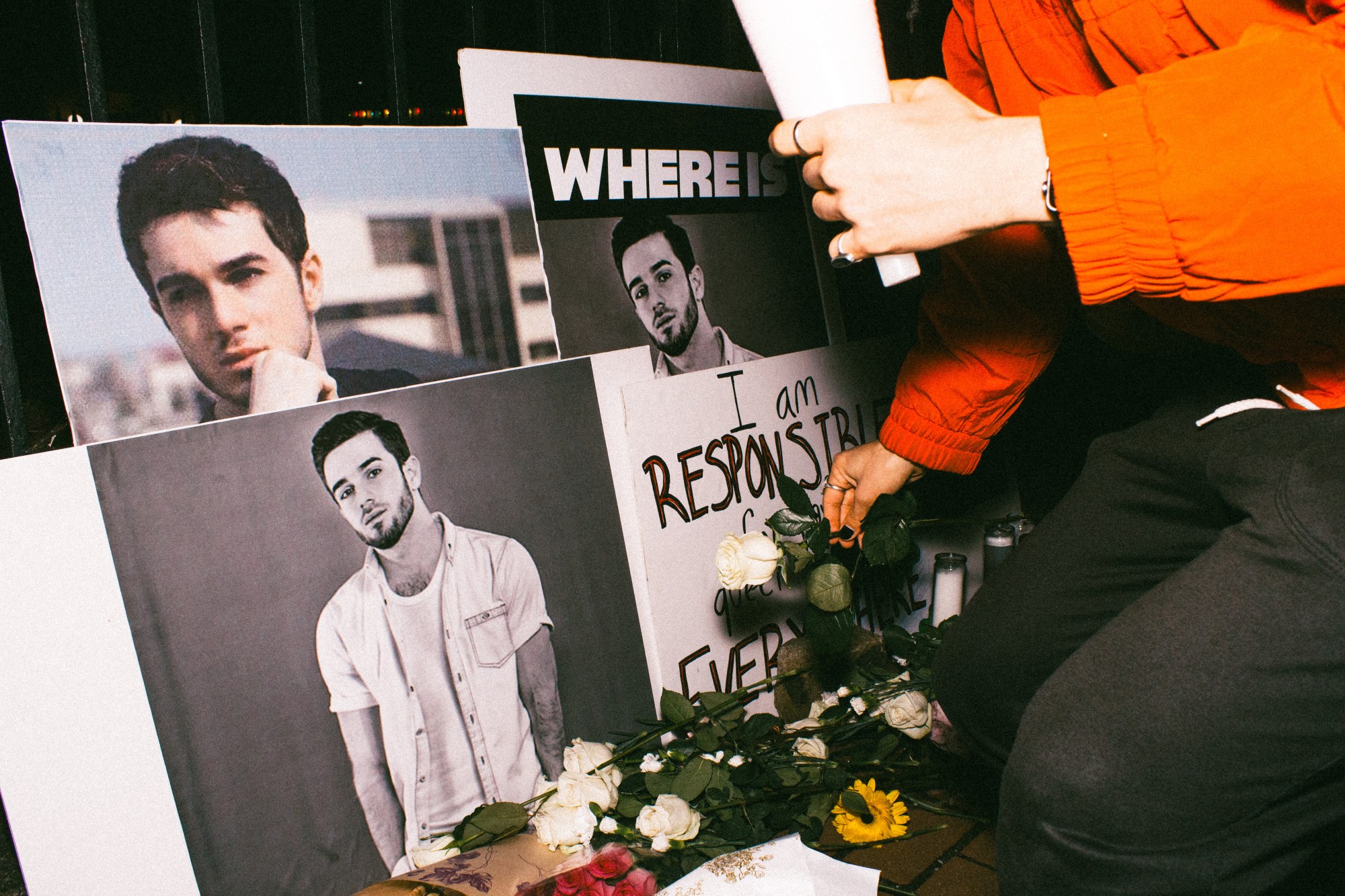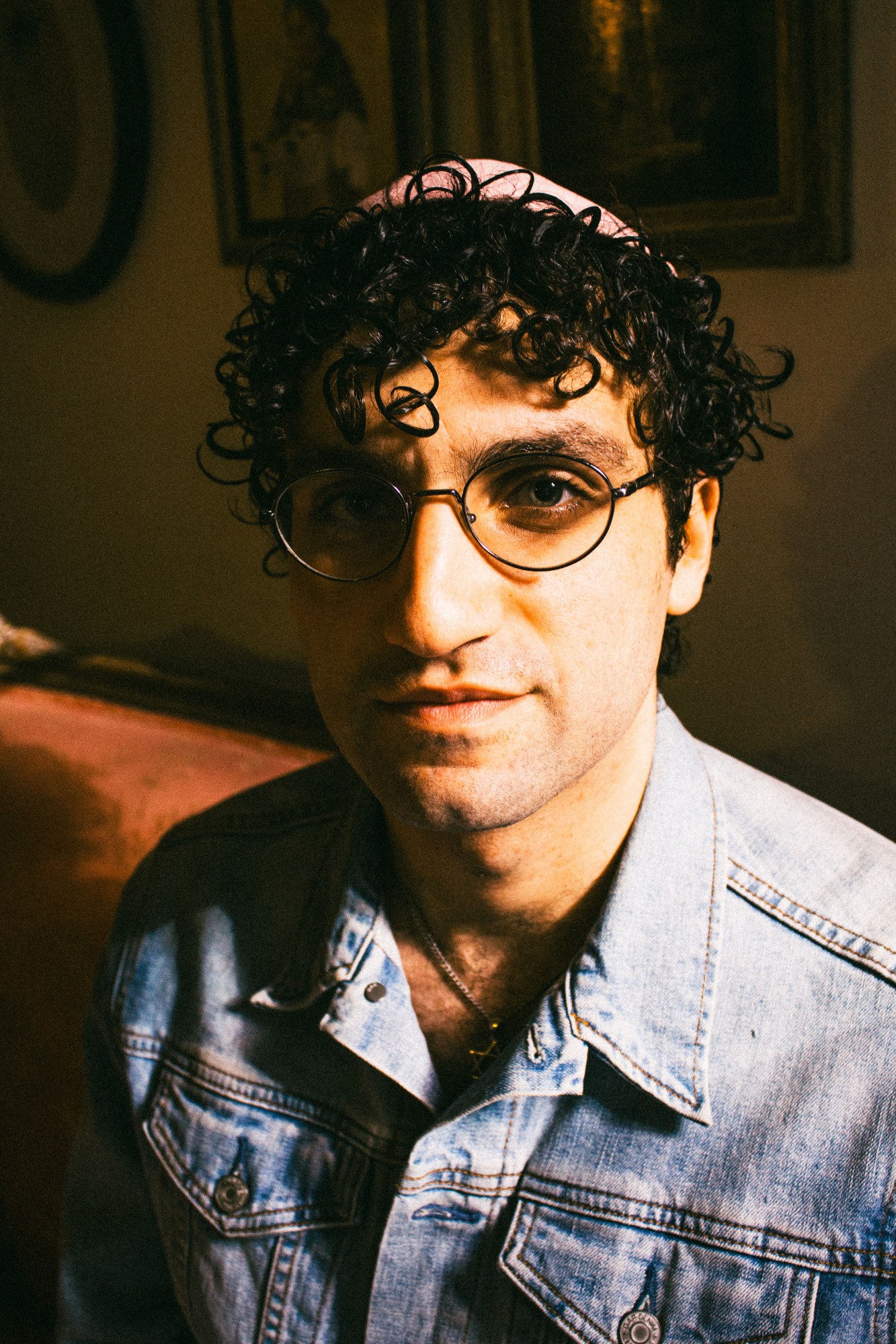Adam Eli’s words are imbued with a mesmerizing and electrifying passion. They’ll make you more than ready and willing to, say, march from Stonewall Inn to Trump Tower as a sign of solidarity with Russia’s LGBT youth. When we talk, the young activist is preparing a vigil for the late Chechen popstar, Zelimkhan Bakae. Zelimkhan was a victim of Chechnya’s anti-gay purges last year. It is believed Zelimkhan was killed by his own family, who viewed his queerness as “dishonorable”. Adam has been one of the most outspoken critics of Chechnya’s actions. He started the NYC-based organization Voices4 to fight for global LGBTQIA+ liberation. “This is an American LGBT issue,” Adam tells me, anger filing his voice. “When a famous gay person goes missing and the government says, ‘We think his family killed him in an honor killing that we condone,’ that is an issue that impacts all of us.”
At 27-years-old, Adam is well-versed in the realities of running successful social justice campaigns. Before founding Voices4, he was part of Gays Against Guns. The organization is working to eliminate America’s reckless gun industry and help protect vulnerable communities against violence. Adam quickly carved out a space for himself, as the organization’s social media manager. In fact, it’s his intrinsic ability to use social media to inspire and motivate that has helped Adam collect over 15K followers on Instagram.
The Western world has made significant progress on LGBT rights over the past few decades. But it is important to remember that in many countries — like Russia, Nigeria, and Jamaica — LGBT people experience disproportionately high risks of violence and live under severe discriminatory laws.
As part of Peace Week, i-D talks to Adam about making sure “queer people everywhere protect queer people everywhere”.

How did you go about starting Voices4? What are the ins and outs of running it?
Voices 4 started by mistake. One of my life mottos is that everything I post on social media and all the work I do must be hopeful or a direct call to action. Preferably both. After the news about Chechnya came out, everyone was really upset. And I thought, Okay, good. But there was nothing for us to do, no one for us to call. Only petitions to sign. And I felt like that wasn’t enough. So I said, “I want to march from Stonewall to the Russian Embassy on 96th Street”. I met with RUSA LGBT (our partner organization for the protest) and they recommended walking to Trump Tower instead. And we did. By the end of it, it was very clear that we had something much more than a march. We had a movement.
I always say no one comes out the womb quoting Malcolm X. We mature into our advocacy over time. When and how did you begin fighting for social justice?
I come from a family of activists. My mother was an activist in the Soviet Jewry movement. I feel like that movement is pretty similar to what’s happening now. Because back then, Jews were being oppressed and persecuted by the Russian government. And now it’s the same thing with queer people.
I really began my activism after the Pulse shootings in 2013. I didn’t know what to do with myself. So I started posting online and people started reaching out asking what they could do to help. I said, “You can meet me at the corner of 7th ave and 12th street and we’ll go to the memorial together.’ I only had 1,000 followers at the time and 30 people showed up. After that, I was like, ‘Woah, the internet can do so much.”
What kind of queer advocacy were you involved in before starting Voices4?
I sat in Gays Against Guns meetings and literally watched them found the group. I really learned the mechanics of advocacy through that. They needed someone to post on social media as things were happening and my hand immediately shot up. So I became their social media manager. I learned that a group should have things like a steering community and a mission statement. And I learned what nonviolent direct action is and the success that ACT UP had with it.
What is nonviolent direct action?
Gandhi, The Women’s March, and Martin Luther King Jr. are the best examples. It’s when a group of people do something to highlight an existing issue and provide a specific response. For example, gay men in New York had a “Sip In” in 1966 at Julius Bar. At the time, it was illegal to sell alcohol to gay men because people had this idea that they’d get “rowdy” in public spaces. So gay activists invited three journalists to come to the bar. They had someone walk in and say, “Hi, I’m homosexual. Can I have a beer?” And the bartender would say no and the gay men would sit down. [Editor’s note: The “Sip In” helped launched a court case against the New York State Liquor Authory. The court decided it was illegal not to serve alcohol to gay patrons because of their sexuality.]
I really can’t stress how important ACT UP and Gays Against Guns have been in the founding of Voices4. A lot of our manifesto is lifted directly from ACT UP’s language (with permission, of course). And I laid out the agendas of Voices4’s first meetings to be exactly like the first ones from Gays Against Guns.
Hearing this reminds me a lot of the film Beats Per Minute, which was about France’s own ACT UP movement and how tricky on-the-ground activism can be. Have you seen it?
Yes! We love that movie. We actually took a group trip to watch it when it came out. We posted flyers everywhere inviting people to come.
That sounds delightful! Has Voices4 helped you feel a strong connection to the LGBT community? It’s so easy to feel alienated from it or like everything is club-centric. I imagine events like movie trips must be pretty fulfilling.
Voices4 is intentionally a community. One of the ways we build it is by going somewhere after our meetings. It’s always somewhere that’s really cheap and you don’t have to be 21 to get into. With Voices4, the thing that unites all of us is this simple driving belief: Queer people everywhere should stand up for queer people everywhere. Therefore, everyone comes from such different backgrounds.
What do you think Americans can do to better support LGBT people living in oppressive countries like Russia?
There are a couple things. The obvious first one is that we can give money to organizations like RUSA LGBT, which assists people right when they come here and helps them get asylum. Because 84% of asylum seekers need help with their cost of living and basic needs when they arrive in America.
And, even more than that, showing up and reaching out is huge. I recently spoke to some of my asylum-seeking friends and they said a big turning point in their journey is when they discovered American friends and those people helped them grow and become who they are today.
We have protests all the time and they’re really important. Because when we go outside a consulate, it conveys that Americans are watching what’s happening in these countries. A lot of immigrants from these countries have told us these protests make a big difference. Governments will see them and let up on their oppressive actions for a least a little bit.
